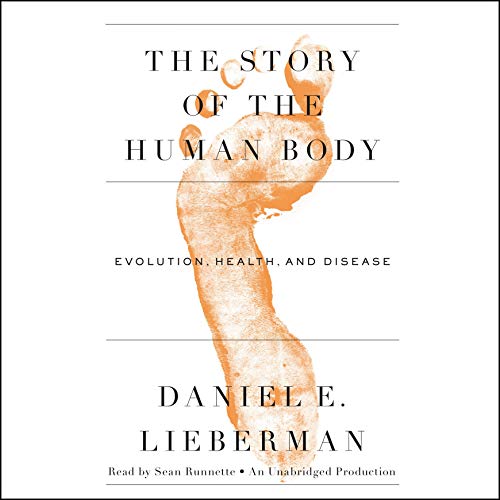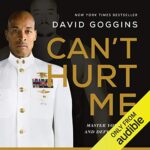Click to rate this post!
[Total: 0 Average: 0]
The Story of the Human Body: Evolution, Health, and Disease audiobook
Hi, are you looking for The Story of the Human Body: Evolution, Health, and Disease audiobook? If yes, you are in the right place! ✅ scroll down to Audio player section bellow, you will find the audio of this book. Right below are top 5 reviews and comments from audiences for this book. Hope you love it!!!.

Review #1
The Story of the Human Body: Evolution, Health, and Disease audiobook free
The Professor traded his lectern in for a pulpit. I was hoping for a detailed march of human evolution as documented by science and giving connection to the environmental changes that brought them on. Instead was a rather verbose listing of a few of his favorite themes- like flat feet which he brought up again & again. Despite his tenure at a university with a medical school it seems he did not talk to folks there for insight and context of several issues like lipid metabolism, shoe wear, & back pain. On several points with which I am very familiar, he is just wrong. While telling us repeatedly about the terror of toxins in our environment he never talks about Hazard vs Risk which is very germane to any discussion of evolution. The first few chapters on the evolution of Homo erectus and the development of bipedal gait covers well known ground, but does it with such astounding number of words & repetition as to obfuscate the important points. The last several chapters say -don\’t get fat, exercise, & eat a reasonable diet. Your money is better spent elsewhere
Review #2
The Story of the Human Body: Evolution, Health, and Disease audiobook streamming online
This is a really enjoyable book. I suppose the points made arent all that novel or mind-blowing, but they are made in a really entertaining, comprehensive and satisfying way and it is packed with insights reinforcing the world-view of evolutionary biology that Ive gleaned from similar audiobooks on related topics. The author is a Harvard professor of biology, and the subject is the human body. He spends the first half of the book describing how the human body evolved since the time of our last common ancestor with the other great apes. Over these six million years or so our bodies have changed due to a sequence of important adaptations, and his explanations of each of these changes and their advantages in the environmental conditions of the time are truly enlightening. Although some of these are well-known to the point of being clichd, e.g. becoming bipedal, losing our fur, developing better voice-boxes, etc, he describes each of these steps to a level of detail that really boosted my understanding of the subject. An example of this is the bipedal adaptation. In order to become efficient walkers our legs got longer, our hips turned inwards, we developed arches in our feet, and the end result was that we use significantly fewer calories to cover a given distance compared to a chimp. We covered long distances in great heat to find food, losing our fur and developing sweat glands to facilitate this activity in the hot African sun retaining head hair to protect us from sunburn. I knew that we were good walkers but I hadnt previously realised that we also evolved as runners. We are very slow runners compared to most of our predators (e.g. lions) and I thought that was just the price we had to pay for becoming bipedal and freeing up our hands for tool-use. But actually, while being rubbish at sprinting, we are excellent, well-evolved long-distance runners. There is evidence that we hunted large mammals using a persistence method; We would patiently jog after a large mammal, which would gallop off until it had to rest in the shade. We would catch up with it and it would gallop off again before it had time to fully recover, and this sequence would continue until the beast eventually collapsed with heat-stroke, making it an easy kill. The second part of the book focuses on the concept of evolutionary mismatch. This is a detailed look at how, when faced with a changing environment, our bodies have initially been poorly matched and have taken time to adapt. There is then a special emphasis on the mismatches that we currently face, with our modern Western lifestyle (the extremely new environment of chairs, beds, computers, pollution, abundant high calorie food, etc, etc). So many modern chronic diseases seem to be associated with us using our bodies in ways they werent adapted for. They are too numerous to mention, but examples are heart disease, fallen arches, type 2 diabetes, short-sightedness and lower back pain. These diseases are rare in present day hunter-gatherer societies, and it isnt because they dont live long enough to succumb to these old-age disorders, the older members of these societies dont typically get them either. So theres a really good discussion of how modern ailments have resulted from the mismatch between our bodies and our new environment. Again, this is not a particularly novel idea, but its a thorough and stimulating discussion with many suggestions for how we could prevent or reduce these diseases, both on a societal and a personal level. If youre interested in this kind of stuff, I wholeheartedly recommend this book.
Review #3
Audiobook The Story of the Human Body: Evolution, Health, and Disease by Daniel Lieberman
I love human evolution books. This one didn\’t get started for me until well into the 2nd chapter because it is basic knowledge. The rest of the book goes into length and specifics discussing hominid development from a physiological perspective. I am familiar with most of the material from other audiobooks but enjoyed the overview. It is easy to follow and discusses how pre-humans and early humans compare. 4 stars because much of the info is standard fair. This is a good science book for audio. It may be too familiar for some listeners [nerds] who are familiar with the topic.
Review #4
Audio The Story of the Human Body: Evolution, Health, and Disease narrated by Sean Runnette
I loved the first half of this book. It\’s hard to find a good book on human evolution. The author steps you through the evolutionary development of man from 2.3 million years ago to 250 thousand years ago and does this part of the book as good as or better than any other book on the topic. He principally looks at why the homo species decided to walk upright and become bipedal and considers the relative advantages and the disadvantages that this brought. It\’s hard to find good books on that topic. I never grow tired about learning about Neanderthals, Denisovans and early man. He actually develops a theory that our evolution and development is best thought of in terms of calorie (energy) consumption and usage a pretty good theory at that. At near the midway part of the book, the author says that he used to stop his lectures on human evolution at 40 thousand years ago. I wish he stopped the book at that point, but, unfortunately, he did not. He states that the agricultural and industrial revolution are the worst things that ever happened to us and he seems to mean it. (He quotes Jared Diamond to that effect, but Diamond might say that but doesn\’t dwell on that in his much better books than this one). The author tells the listener that modern hunter gatherer groups live longer and with less pain when you factor out tobacco and alcohol. All the negative things the author says about our diet and exercise (lack thereof) is true, but we are learning and we are moving ahead and adapting culturally. I\’m a rational optimist. Humans are dynamic and we are learning as we progress and we just don\’t stand still as more data becomes available to us. The author is right, adult onset diabetes (Type II) is a scourge for out bodies, but we are changing are behaviors and we are learning from our past mistakes.
Review #5
Free audio The Story of the Human Body: Evolution, Health, and Disease – in the audio player below
It made me think a lot in having a more healthy lifestyle. Nice narrator as well.
Recommend Books
Audiobook09 player
If the audio player does not work, please report to us, we will fix it as soon as possible (scroll up a little you will find the "REPORT CONTENT" button).












0 Comments: